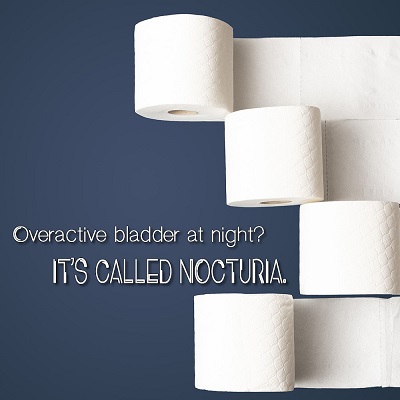 Do you have to wake up several times at night to relieve yourself? Is it affecting the quality of your sleep and your health in general? You may have nocturia. Understanding its symptoms, causes, and treatment is the first step to improving your condition.
Do you have to wake up several times at night to relieve yourself? Is it affecting the quality of your sleep and your health in general? You may have nocturia. Understanding its symptoms, causes, and treatment is the first step to improving your condition.
What is Nocturia?
Nocturia is characterized by making at least two trips to the bathroom in the evening to urinate. This condition affects millions of Americans and is one of the many reasons behind poor sleep quality.
It can affect both men and women, young and old. But according to a study published in The National Center for Biotechnology Information (NCBI), 76% of women and 60% of men who are at least 40 years old wake up more than once in the evening to urinate.
Although older people are at a higher risk of suffering from nocturia, it shouldn’t be considered as a condition that you can’t prevent. There are things you can do to cut down the number of your trips to the bathroom and sleep better at night.
What are the Causes of Nocturia?
The causes of nocturia range from poor lifestyle choices to hormonal changes to health problems. The most common causes are the following:
- Drinking too much before sleeping.
- Training yourself to wake up several times in the evening to urinate.
- Taking medications that induce frequent urination, such as diuretics and cardiac glycosides.
- Diabetes.
- Bladder obstructions or infections.
- Pregnancy.
- Menopause.
- Prostatic hyperplasia.
- Congestive heart failure.
- Kidney disease or kidney failure.
What are the Types of Nocturia?
1 – Polyuria – This is a condition where you urinate more than 3,000 mL per day. It’s commonly due to drinking excessive amounts of fluid. This can be due to certain medical conditions, such as untreated Type 1 or Type 2 diabetes.
2 – Nocturnal Polyuria – With this type, frequent urination only happens at night. Individuals who have congestive heart failure, edema of the lower extremities, or a high-sodium diet are predisposed to experiencing this condition.
3 – Nocturnal Urinary Frequency – This condition occurs when you urinate frequently but in small amounts. There’s no increase in the urine volume your body produces, but your bladder doesn’t empty completely each time.
What are the Effects of Nocturia?
Nocturia is not only a nuisance but can also create significant health problems when not addressed promptly. The likely impacts of nocturia on your sleep quality and overall health can be:
- Reduced and low-quality sleep at night.
- Persistent drowsiness during the day.
- Impaired mental and physical function.
- Higher risks of accidents, such as falls and fractures.
- Irritability and depression in worse cases.
What are the Treatment Options for Nocturia?
When you visit your doctor, you’ll undergo a thorough physical examination, urinalysis, and urine culture. In some cases, you’ll be asked to come in for a bladder scan, cystoscopy, or urodynamic testing.
Your doctor will ask you questions to help determine the underlying cause of the condition. The questions cover the following:
- When the symptoms start to appear.
- If you produce small or large amounts of urine.
- How many times you urinate every night.
- If you notice any changes in the volume of your urine.
- How much coffee or alcoholic you drink every day.
- Any recent changes to your diet.
- Whether you get enough sleep at night.
The treatment provided will depend on what’s deemed to be the underlying cause of your medical condition. The medications most often prescribed include –
- Anticholinergic drugs – to treat bladder muscle issues.
- Desmopressin – to help the kidneys produce less urine.
- Diuretic medicines – to regulate the production of urine.
You will be advised to make some behavioral changes to treat nocturia, such as the following:
- Limit the volume of fluids you take at night, especially before bed.
- Limit, if not totally avoid, drinking caffeine and alcohol in the evening.
- Take afternoon naps because it helps your body absorb fluid into your bloodstream.
- Elevate your legs so that fluid can be distributed back into your bloodstream, so you minimize your trips to the bathroom.
Take Action
Nocturia can be a debilitating condition if not treated correctly and quickly. It affects not only your sleep but also your physical and mental health. Seek professional medical help if you notice signs of nocturia. Your doctor will determine the underlying cause of your condition and create a treatment plan that’s suitable for your situation.






